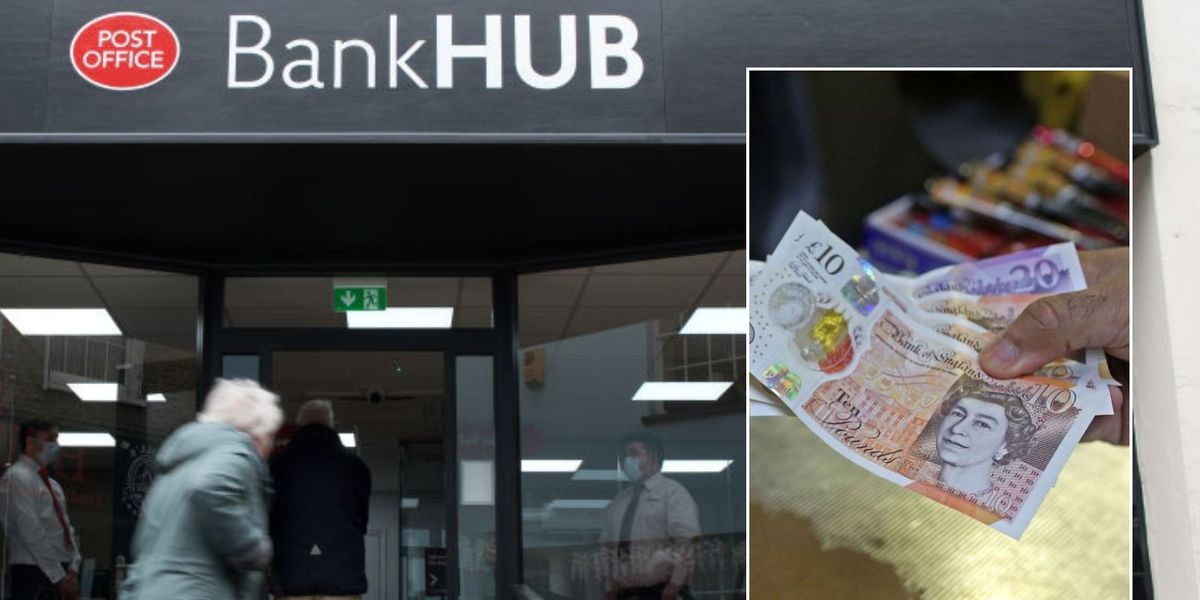Britain’s banks have agreed to establish 350 new banking hubs over the next five years, however, an expert has warned that this initiative is inadequate as many communities will still be left without access to all financial services.
The new hub openings were announced with the aim to address the ongoing bank branch closures crisis, which has seen 6,128 branches shut since January 2015, at a rate of around 53 each month.
The commitment of these new openings was given by bank chiefs in a meeting with Tulip Siddiq, the Economic Secretary, last week, and is intended to deliver on a Labour manifesto commitment to address the problem of “banking deserts” in many towns.
However, Ron Delnevo, chair of the Payment Choice Alliance, told GB News: “The number of 350 by 2029, seemingly agreed with Tulip Siddiq, is wholly inadequate.
“The CEO of Cash Access UK had already agreed to have 200 open by the end of 2025. 350 by 2029 is actually a drastic slowing down of the opening programme.”
As branch closures continue, the pressure on these hubs to fill the gap will only increase.
Post Office and Cash Access UK have announced 50 banking hubs have now been opened
POST OFFICE
Banking hubs are shared spaces on the high street operated jointly by the Post Office and various lenders. Major banks like Barclays, HSBC, Lloyds, NatWest, and Santander have all agreed to participate in this initiative. Each day, a different bank representative is available on rotation in each banking hub.
The hubs aim to provide essential banking facilities, particularly for those who rely on in-person services, with Siddiq explaining they are “a lifeline for local communities that have lost their final bank branch”.
Each hub should offer a range of services, including cheque deposits, cash transactions, and personal consultations with community bankers. Customers can also access private areas for more complex banking matters.
Siddiq has pushed the banks to increase the range of services available in the new hubs, after concerns were raised about a lack of printers in certain hubs. This meant some customers could not get hard copies of statements or documents.
Some banks involved have complained that the Government is asking them to provide services that they don’t even offer in their own branches.
For example, some lenders are willing to allow customers to open or close accounts in the hubs while others are not, or they will only do so if customers use their own device.
The lack of standardisation in banking hubs may undermine their use in replacing traditional branches, particularly for those who rely on comprehensive in-person banking services.
Cash Access UK and the Government has announced hundreds of new banking hubs by 2025 but Delveno warned these are “not necessarily with 24/7 ATM services”. No commitments have been offered on 24/7 Cash Recycling ATMs or free “Cash Back,” she said.
Delveno continued: “In short, what has so far been promised is wholly inadequate. The fact that bank hubs are not required to have a 24/7 ATM is ludicrous. Without such an ATM they are not providing an adequate cash service in any community.
“This also highlights another flaw in the bank hub concept – the FCA has not forced the big five UK banks to agree any kind of detailed specification of such hubs.”
This lack of standardisation allows banks to “dither even about whether the hubs should have printers, let alone ATMs,” Delnevo added, emphasising the potential inconsistencies in service provision across different hubs.
IT security concerns also pose a significant hurdle. Some community bankers are unable to access customer data on their laptops due to security protocols. This limitation forces customers to bring their own devices for certain transactions.
The impact of these banking hubs on customers, particularly the elderly, remains uncertain. Whilst they aim to fill the gaps left by branch closures, the inconsistent services and potential lack of ATMs may not fully meet community needs.
Many elderly individuals still rely heavily on in-person banking services. The shift towards online banking and the closure of traditional branches have made it increasingly challenging for this demographic to access essential financial services.
A more comprehensive solution is needed to ensure all customers, regardless of age or technological proficiency, can access the full range of banking services.
This may require stricter regulations on hub specifications and a commitment to maintaining cash access through ATMs.
Without such measures, the banking hub initiative may fall short of adequately replacing the services lost through branch closures
Without swift action to improve and expand the banking hub programme, many communities may find themselves increasingly cut off from vital financial services.
Delnevo concluded: “There are obvious flaws in this deal with the banks.”

